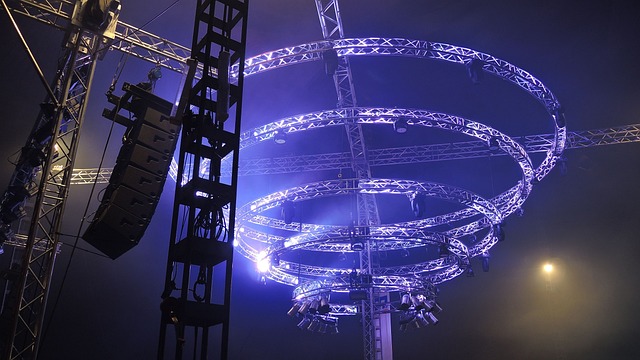Event Planning for Local Businesses thrives on engaging residents, business owners, and organizations to grasp unique community needs and preferences. Defining clear goals, choosing suitable venues, activities, and marketing strategies based on demographics and interests, ensures events like food festivals, workshops, or cultural events resonate with attendees, foster neighborhood well-being, strengthen business relationships, and leave a positive impact on local identities.
In today’s competitive landscape, effective event planning is not just about organizing gatherings; it’s about building vibrant communities. For local businesses looking to engage their customers and elevate their brand, understanding community needs is key. This article provides a comprehensive guide to event planning, from identifying the right goals and engaging community leaders to choosing efficient tools and promoting participation. By mastering these strategies, local businesses can host successful events that foster strong community bonds.
- Understanding Your Community's Needs
- – Identifying the purpose and goals of community events
- – Researching local demographics and interests
Understanding Your Community's Needs

Before planning any community events, it’s crucial to understand your local area and its inhabitants’ unique needs and preferences. This involves engaging with residents, business owners, and local organizations to gauge interest and identify potential challenges or opportunities. Event Planning for Local Businesses can greatly benefit from this step as they can tailor their initiatives to attract a wider audience and foster stronger community ties.
By listening to the community, organizers can create events that resonate with people’s interests, address their concerns, and celebrate local culture. This could mean hosting food festivals showcasing diverse cuisines, organizing outdoor movie nights in parks, or arranging workshops on topics relevant to everyday life. Such initiatives not only bring people together but also contribute to the overall well-being and vibrancy of the neighborhood.
– Identifying the purpose and goals of community events

When planning community events, it’s crucial to define the event’s purpose and set clear goals. This involves understanding the needs and interests of your local community. For instance, a neighborhood association might aim to foster social connections among residents, while a local business could seek to attract new customers or promote its products through an event. Identifying these objectives guides every aspect of planning, from choosing the right venue and activities to setting a budget and marketing strategies.
For Event Planning for Local Businesses, defining goals is key. It helps in tailoring events that resonate with attendees and achieve desired outcomes like increased brand visibility, customer engagement, or community goodwill. Whether it’s organizing a charity walk, a cultural festival, or a simple block party, having a well-defined purpose ensures every effort contributes to building a stronger local community and enhancing business relationships within it.
– Researching local demographics and interests

When planning community events, understanding your local demographics and interests is a cornerstone strategy for success. Event planners can gain valuable insights by analyzing population data, age groups, cultural backgrounds, and shared hobbies within the area. This knowledge allows organizers to tailor activities that resonate with the community, fostering higher attendance and engagement. For instance, a business-focused event in a tech-savvy region might include workshops on digital marketing or coding classes, while a suburban area with a strong artistic culture could benefit from art exhibitions or music performances.
By delving into these local nuances, Event Planning for Local Businesses becomes more than just organizing an assembly; it transforms into a strategic effort to create meaningful connections. This approach not only ensures better turnout but also leaves a lasting positive impact on the community, setting the stage for future events that truly represent and celebrate local identities.
Community events have the power to bring people together, foster connections, and enhance the overall well-being of a neighborhood. By understanding your community’s unique needs and demographics through research, you can organize events that resonate deeply with attendees. For local businesses, event planning is not just about hosting gatherings; it’s an opportunity to engage with their target audience, build brand loyalty, and contribute to a thriving local scene. With the right approach, community events can become a vibrant part of the fabric of Event Planning for Local Businesses, creating lasting memories and positive outcomes for all involved.
